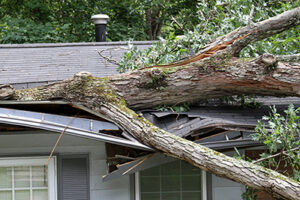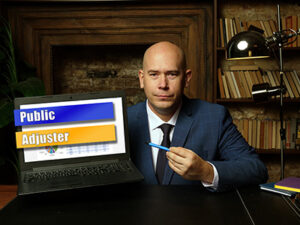When storms roll in, one of the most vulnerable parts of your home is the roof. High winds and hail can cause significant damage—some obvious, some not so easy to detect. Knowing how to handle insurance claims related to roof damage can make a big difference in how quickly and fully you’re compensated. Here’s what every homeowner should know.

Common Signs of Roof Damage After a Storm
Even if your roof looks intact from the ground, damage could still be present. Here are some signs to look for:
-
Missing or lifted shingles due to high winds
-
Bruised or cracked shingles from hail impacts
-
Granule loss that exposes the underlying mat
-
Dents on vents, gutters, or flashing
-
Leaks or water stains on ceilings or in the attic
After any major storm, it’s a good idea to have a professional inspect your roof, even if there’s no visible damage.
Step-by-Step Insurance Claim Tips
1. Document the Damage Immediately
Take clear photos or videos of your roof and any interior damage caused by leaks. This evidence is crucial when filing your insurance claim.
2. Review Your Insurance Policy
Understand what your policy covers. Some policies differentiate between cosmetic and functional damage, and there may be special provisions for wind or hail damage.
3. File the Claim Promptly
Most policies require you to file a claim within a specific time frame after the damage occurs. Don’t delay—waiting could jeopardize your ability to get compensated.
4. Get an Independent Inspection
Insurance company adjusters may not always catch the full extent of the damage. Hiring a public adjuster or an independent roofing contractor can ensure a more accurate assessment.
5. Don’t Sign Anything Too Quickly
Some roofing companies may pressure you to sign contracts immediately. Take your time to get multiple estimates and consult your public adjuster before agreeing to any repairs.
Why Work with a Public Adjuster?
A public adjuster works on your behalf—not the insurance company’s. They:
-
Evaluate your damage independently
-
Help you understand the fine print of your policy
-
Advocate for a fair and full settlement
-
Handle negotiations so you don’t have to
If you’re unsure whether the offer from your insurer is fair or feel overwhelmed by the claims process, a public adjuster can be a valuable ally.
Final Thoughts
Dealing with roof damage after a wind or hailstorm can be stressful—but being prepared makes it easier. Document thoroughly, act quickly, and don’t be afraid to seek help from professionals who have your best interests in mind. The goal is to restore your home—and your peace of mind—as quickly and fairly as possible.
Reliable Claims Adjusting provides you get the maximum insurance payment that you deserve. For more information, go to our web site https://www.reliableclaimsadjusting.com
or call (727) 370-1119.


